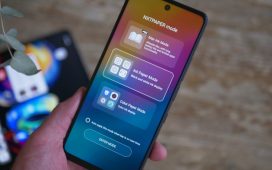Google’s ongoing antitrust tussle spawned a list of sweeping policy suggestions — including a proposed sale of the Chrome business — by the Department of Justice. The focus of the lawsuit centers on the Search monopoly, but it has serious ramifications for Android and the overall browser situation.
Now, Google has shared its own “remedies proposal” to the DOJ’s recommendations, which it claims are going “far beyond what the Court’s decision is actually about.”
The first remedy would be that partners like Apple will have the freedom to choose a browser engine of their choice. Google pays billions of dollars to top companies like Apple and Samsung so that they can push Google Search as the automatic default on their respective products.
Please enable Javascript to view this content
In the name of flexibility, Apple allows users to change the default search engine on their iPhones. And last year, an Apple executive confirmed that with iOS 17, users can set separate search engines for browsing in regular and private mode with the Safari browser.
Google also pays rivals of the Chrome browser to favor its search engine. For example, Google funnels hundreds of millions of dollars to Mozilla each year, and that hefty sum has actually helped keep the browser-maker on its feet.
The fresh proposal notes that the company would offer separate search engine deals to these companies for each platform. That means Google and Apple would ink distinct search deals for iPhone (iOS) and iPad (iPadOS) platforms, as well as browsing modes.
Another interesting element of Google’s proposal is the freedom to renew the partnership each year, which means the likes of Apple will have the chance to look elsewhere in the pool.
“[There’s] the ability to change their default search provider at least every 12 months,” explains Lee-Anne Mulholland, Vice President of Regulatory Affairs at Google. As mentioned above, the Search situation is tied deeply to Android, and that could change dramatically if the terms are accepted.
A major shift for Android

“Our proposal means device makers have additional flexibility in preloading multiple search engines and preloading any Google app independently of preloading Search or Chrome,” says Google.
The key here is what you can call conditional licensing, where a brand has to embrace one Google service to access the other. Google’s licensing deal with Android device makers for Google Mobile Services (GMS) includes certain preinstallation clauses and agreements for rival search engines.
“Android partners would not need to license Google Search (or Chrome) in order to preload Google Play or other Google applications on Android devices, addressing the Court’s concerns about device manufacturers’ options to preload a rival search engine, including on an exclusive basis,” says Google in its filing.
Google’s proposal also notes that it won’t restrict its partners from preloading rival search engines or browsers on their devices. That also covers the AI field. In order to access core Google products like Search, Google Play, or Chrome, Android device makers won’t have to mandatorily bundle the Gemini AI assistant.
Moreover, Google also won’t push for any exclusive distribution or licensing hurdles if a device-maker bundles a generative AI product that rivals Gemini. The broad idea is that Google will not impose Search as the licensing criteria for accessing other products like Play services on a device.
Notably, all the remedial proposals would cover a span of three years instead of the 10-year spell requested by the plaintiffs in the lawsuit. “We don’t propose these changes lightly,” says Google, adding that they would come at a cost to its partners but still address the court’s core concerns.












